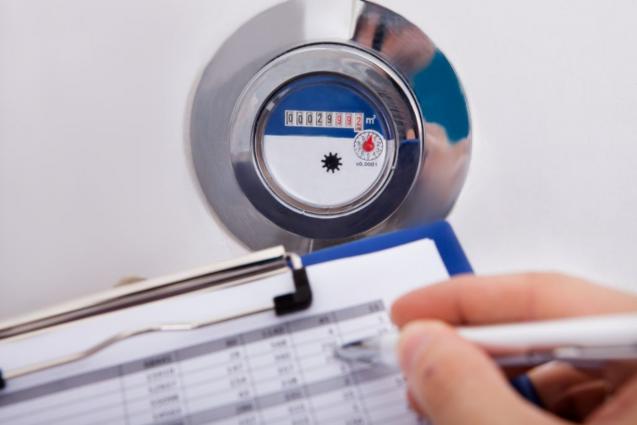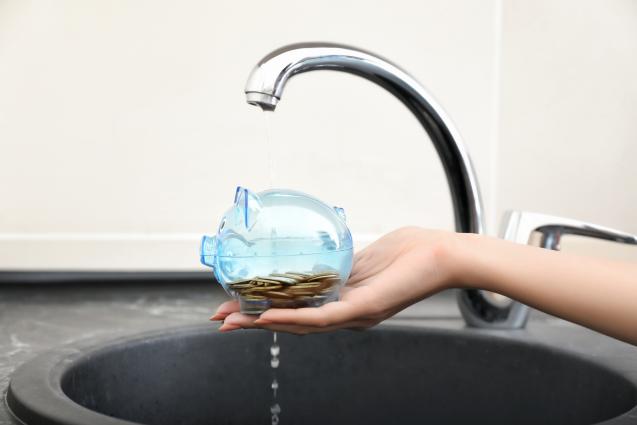
Hard Water Vs. Soft Water: What's The Difference?
By Fluid Plumbing|December 15, 2021
Water is used for much more than just drinking; it's also used in our homes for cleaning, bathing, and watering our lawns and gardens. So the kind of water we use can make a big difference in how effective it is.
If you're like most people, you probably have no idea what hard water is or how it's different from soft water.
Many homeowners don't, but it's an important distinction to understand. Hard water contains a high level of minerals like calcium and magnesium, while soft water has low levels.
But, which type of water is better for you? Let's take a look.
Comparing Soft And Hard Water
There are pros and cons to both hard and soft water. Hard water is more beneficial to health, while soft water is better for appliances and clothing. Let's take a closer look at the pros and cons of each type of water.
Pros Of Hard Water
Hard water contains more minerals than soft water. These minerals can include calcium, magnesium, and iron. Some people believe that these minerals are healthier than the chemicals found in soft water.
Moreover, hard water has been linked to lower rates of heart disease and some types of cancer. It can also improve bone health by increasing calcium absorption.
Cons Of Hard Water
However, hard water can also have adverse effects on health. For example, it can lead to mineral deposits forming on teeth and bones. Hard water can also be difficult to rinse out of clothing and cleaning utensils. This makes it harder to clean.
It can leave spots or scales on dishes, glasses, fixtures, etc., making plumbing erode faster.
Additionally, hard water requires more detergent for dishes, laundry, and bathing. Moreover, it negatively affects a person's hair if it is coloured and also causes dandruff.
Pros Of Soft Water
Soft water is great for those who frequently dye their hair, preventing the color from fading. Moreover, it makes washing dishes and laundry easier and preserves cutlery, plates, and clothes.
Also, soft water doesn't negatively impact your plumbing system.
Cons Of Soft Water
On the other hand, since soft water contains fewer minerals, it is considered bad for health.
Some researchers believe that people absorb fewer nutrients from their food without minerals in soft water. The chemicals in soft water may also cause skin dryness or irritation when used for bathing or washing clothes.
To Sum Up
Both soft and hard water have their pros and cons. It would be best if you spoke to specialists to check whether the water running in your home is causing harm to either the residents, the house, or appliances. Overall, it seems that soft water is less harsh than hard water, but the chemicals used to soften it may be detrimental in the long run.
If you're not sure the difference between hard and soft water, then it might be time to call a plumber. A licensed plumber can help tell if your plumbing system is right for hard or soft water.
If you're like most people, you probably have no idea what hard water is or how it's different from soft water.
Many homeowners don't, but it's an important distinction to understand. Hard water contains a high level of minerals like calcium and magnesium, while soft water has low levels.
But, which type of water is better for you? Let's take a look.
Comparing Soft And Hard Water
There are pros and cons to both hard and soft water. Hard water is more beneficial to health, while soft water is better for appliances and clothing. Let's take a closer look at the pros and cons of each type of water.
Pros Of Hard Water
Hard water contains more minerals than soft water. These minerals can include calcium, magnesium, and iron. Some people believe that these minerals are healthier than the chemicals found in soft water.
Moreover, hard water has been linked to lower rates of heart disease and some types of cancer. It can also improve bone health by increasing calcium absorption.
Cons Of Hard Water
However, hard water can also have adverse effects on health. For example, it can lead to mineral deposits forming on teeth and bones. Hard water can also be difficult to rinse out of clothing and cleaning utensils. This makes it harder to clean.
It can leave spots or scales on dishes, glasses, fixtures, etc., making plumbing erode faster.
Additionally, hard water requires more detergent for dishes, laundry, and bathing. Moreover, it negatively affects a person's hair if it is coloured and also causes dandruff.
Pros Of Soft Water
Soft water is great for those who frequently dye their hair, preventing the color from fading. Moreover, it makes washing dishes and laundry easier and preserves cutlery, plates, and clothes.
Also, soft water doesn't negatively impact your plumbing system.
Cons Of Soft Water
On the other hand, since soft water contains fewer minerals, it is considered bad for health.
Some researchers believe that people absorb fewer nutrients from their food without minerals in soft water. The chemicals in soft water may also cause skin dryness or irritation when used for bathing or washing clothes.
To Sum Up
Both soft and hard water have their pros and cons. It would be best if you spoke to specialists to check whether the water running in your home is causing harm to either the residents, the house, or appliances. Overall, it seems that soft water is less harsh than hard water, but the chemicals used to soften it may be detrimental in the long run.
If you're not sure the difference between hard and soft water, then it might be time to call a plumber. A licensed plumber can help tell if your plumbing system is right for hard or soft water.



